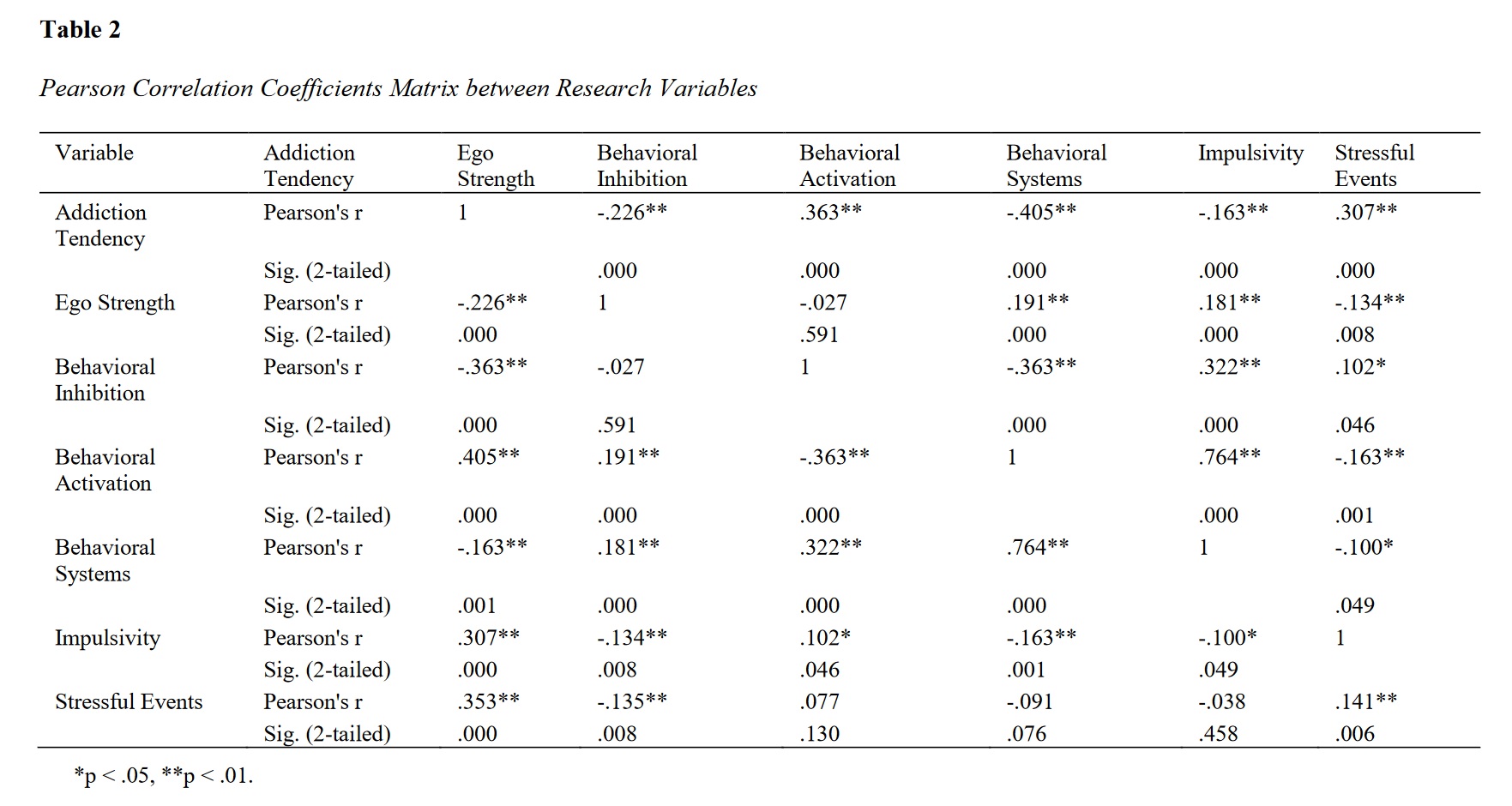Examining the Role of Stressful Events, Behavioral Brain Systems, and Ego Strength with the Mediating Role of Impulsivity in the Tendency Toward Addiction Among Youth in Yasuj
Keywords:
Impulsivity, Stressful Events, Behavioral Brain Systems, Ego Strength, Tendency Toward AddictionAbstract
Objective: The present study aimed to determine the mediating role of impulsivity in the relationship between stressful events, behavioral brain systems, and ego strength with the tendency toward addiction among the youth in Yasuj.
Methods and Materials: This study employed a descriptive-correlational design and used structural equation modeling. The statistical population comprised all youths aged 18 to 30 years in Yasuj in 2022. Based on the Krejcie and Morgan (1987) table and using multi-stage cluster random sampling, 384 youths from Yasuj were selected for the study. Data were collected using the Holmes and Rahe (1960) Life Stress Events Questionnaire, the Markstrom et al. (1997) Ego Strength Psychosocial Scale, the Barratt Impulsiveness Scale (1950), the Carver and White (1994) Behavioral Inhibition/Activation Systems Scale, and the Waid and Butcher (1992) Addiction Proneness Scale. After data collection and extraction, participants' scores were analyzed using Pearson's correlation coefficient, multiple regression, and path analysis via SPSS-24 and AMOS software.
Findings: Pearson's correlation coefficient results showed a significant positive relationship between life stress events and the tendency toward addiction among the youth in Yasuj (P < 0.01). There was a significant negative relationship between the behavioral inhibition system and the tendency toward addiction among the youth in Yasuj (P < 0.01). There was a significant positive relationship between ego strength and its components and the tendency toward addiction among the youth in Yasuj (P < 0.01). There was a significant positive relationship between the behavioral activation system and the tendency toward addiction among the youth in Yasuj (P < 0.01). There was a significant positive relationship between impulsivity and the tendency toward addiction among the youth in Yasuj (P < 0.01). Additionally, the results of the path analysis for the study's indirect hypothesis indicated that the mediating role of impulsivity in the relationship between the independent variables (stressful events, behavioral brain systems, and ego strength) and the dependent variable (tendency toward addiction) was confirmed.
Conclusion: Based on the obtained results, strategies can be developed to prevent the youth from tending toward addiction by enhancing ego strength and identifying life stressors and behavioral activation systems.
Downloads

Downloads
Additional Files
Published
Issue
Section
License
Copyright (c) 2024 Fatemeh Mosaei Sisakht (Author); Alireza Maredpour (Corresponding Author); Khosro Ramezani (Author)

This work is licensed under a Creative Commons Attribution-NonCommercial 4.0 International License.














